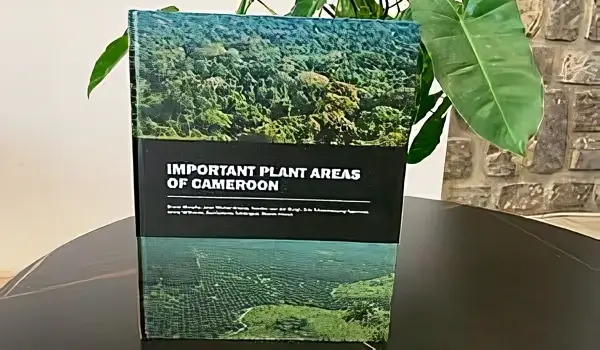The book *Important Plant Areas of Cameroon* was launched on 18 June during UK-Cameroon Climate Week, revealing that over 850 plant species in Cameroon are endangered and spread across 49 critical biodiversity hotspots.
Co-authored by Cameroon’s IRAD National Herbarium and the Royal Botanic Gardens, Kew, the publication highlights Cameroon as Africa’s most tropically diverse country but warns of threats from mining, logging, and palm oil plantations that jeopardize the Congo Basin’s ecological balance.
Cameroon’s Biodiversity Under Threat
Cameroon is home to over 850 endangered plant species, representing a significant portion of its flora. This alarming figure underscores the country’s status as having the highest number of threatened trees in Africa.
The recent publication of *Important Plant Areas of Cameroon* sheds light on these critical biodiversity hotspots and emphasizes the urgent need for conservation efforts.
The book’s launch during UK-Cameroon Climate Week highlights the collaborative efforts between Cameroonian scientists and UK-based experts from the Royal Botanic Gardens, Kew.
This partnership aims to address threats posed by expanding mining activities, logging operations, and palm oil plantations that endanger not only local biodiversity but also global climate stability.
UK’s Role in Conservation Efforts
The UK’s involvement in this initiative reflects its commitment to international climate action. British High Commissioner Matt Woods emphasized Cameroon’s vital role in global climate talks and called for stronger international support to safeguard the Congo Basin’s irreplaceable biodiversity.
This aligns with previous UK government commitments to enhance biodiversity protection and reduce deforestation.
Opportunities for UK Stakeholders
- UK businesses sourcing palm oil or timber must consider environmental impacts on Cameroon’s forests.
- NGOs can advocate for increased conservation funding and partnerships with Cameroonian organizations.
- Policymakers can push for stronger international support at forums like COP30.
The Effect on Global Supply Chains
The expansion of palm oil plantations in Cameroon has direct implications for global supply chains affecting UK markets.
From food products to cosmetics, many consumer goods rely on ingredients sourced from regions experiencing deforestation.
This connection underscores the importance of responsible sourcing practices among UK companies to mitigate their environmental footprint.
Sustainable Choices for Consumers
- Support products certified as sustainable or eco-friendly.
- Avoid items linked to deforestation or unsustainable practices.
- Encourage brands to adopt transparent supply chain policies.
Quotes from Stakeholders
“He urged the international community to amplify Cameroon’s voice at major forums like COP30 and called for stronger global support to safeguard the Congo Basin’s irreplaceable biodiversity.”
– Matt Woods, British High Commissioner, British High Commission Yaounde
“It’s been a fantastic week of new collaboration. We’ve been working with IRAD National Herbarium and developing opportunities to extend our reach and do more work here in Cameroon.”
– Prof. Philip Stevenson, Representative, Royal Botanic Gardens, Kew
Additional Reading
To Sum Up
This collaboration between Cameroon and the UK highlights a shared responsibility towards preserving our planet’s rich biodiversity.
As stakeholders work together across borders, it becomes increasingly clear that protecting ecosystems like those in Cameroon is crucial not just locally but globally—impacting climate stability worldwide.
Discover more of More of Todays Top Breaking Government News Stories!
Sources: UK Government, Royal Botanic Gardens Kew, and British High Commission Yaounde.
Prepared by Ivan Alexander Golden, Founder of THX News™, an independent news organization delivering timely insights from global official sources. Combines AI-analyzed research with human-edited accuracy and context.









